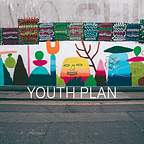Care and Activism: Mapping the Growing Movement of Caregiver-Led Environmental Activism
This text is co-authored by our project team members Daniela Dominguez and Romina Rodela.
Activism connected to environmental issues continues to grow around the world and it is interesting to observe how groups led by mothers, fathers, and other caregivers, appear to be increasing in numbers. These groups mobilise for the improvement of environmental conditions needed to safeguard the well-being of children and youth today, and the well-being of those in the future. It is interesting to observe how they engage in practical terms with the idea of care and caring relationships which appear to take centre stage in their advocacy. The narratives employed by many of these groups seem to deviate from conventional perspectives, which uphold the values of justice, rights, and autonomy. Instead, they propose that compassionate relationships should play a crucial role in ethical decision-making, especially during times of crisis. The way these groups engage with the moral obligation to care for others is an interesting turn to how environmental movements have traditionally framed their narratives.
Examples of this kind of activism can be found in global movements such as Parents for Future or Our Kids Climate and in individuals such as Rosamund Adoo-Kissi-Debrah, the founder and leading voice of the Ella Roberta Foundation. Rosamund was compelled to pursue her activism following the death of her daughter Ella Roberta Adoo-Kissi-Debrah who died due to respiratory complications attributed to the high levels of air pollution in their neighbourhood. The case set a legal precedent by recognizing air pollution as a contributing factor to the girl’s death. Rosamund has emerged as a leading global advocate for clean air, wielding a strong voice in the discourse surrounding air pollution. In an interview with the Guardian, she stated “A society is judged by how it treats its most vulnerable.” a statement to which several of these movements appear to be relating closely.
It is important to acknowledge that mothering activism is not new. As different studies point out, motherhood often motivates women to work for the betterment of society beyond their individual families and households. Mothers have been reported to be at the head of movements pushing for issues such as the improvement of health care, reproduction, child care, and education. However, in recent years causes that move mothers and other caregivers to take the streets expanded to include environmental equity and climate justice. Yet, despite the growing number of mothers, fathers, and other caregivers mobilizing globally on climate justice, this movement remains largely under-investigated.
In our team, we study questions of inter-generational equity and justice as part of Working Package Four and we were interested to look closer that mothering movements. Thus, in the winter of 2023, we started mapping activist groups, movements, and associations that advocate for change and seek equity and justice for children and youth. We compiled a data file allowing us to identify some first trends, general characteristics as well as some particularities that emerge from their advocacy which are summarized in a descriptive report.
We identified a large number of groups but 50 of these met our selection criteria and were selected for inclusion in the dataset. The fifty groups are nonpartisan and non-religious organisations and seem to be sharing the aim of working for a world that is suitable and inhabitable for future generations. It appears that women, especially those who are mothers, are the prominent voices and leaders of these organizations. However, motherhood is not always emphasized in their mobilization campaigns. Instead, many groups use a caregiver narrative which we interpret as being aligned with ambitions of being inclusive. These groups focus on various environmental issues like climate change, pollution, and discrimination. They work with other organizations and across generations on projects, demonstrations, and fundraising. Many of these groups take action locally and for instance, are engaged in tree-planting, promotion of bike use, etc. They aim to reach out to other parents, policymakers, and the general public who are invited to join. Also, they seek to influence decision-makers and business owners to support their environmental agenda.
One of the driving factors behind groups’ activism is a shared concern for the future of children and young people which suggests how climate anxiety and the need to speak out and do something are shared across generations. These movements also raise important questions about equity across generations. We find that activism led by mothers, fathers and other caregivers is a growing movement that deserves more attention. Of particular interest to our work in WP4 is how these groups use ideas and narratives around care and nurturing as driving forces to push for social and environmental change. We are looking forward to learning more about the potential this social movement has to create change by bringing the idea of inter-generational caring relationships as a universal practice closer to policymakers.
If you want to read more about our investigation and some first observation we made, we welcome you to look at the descriptive report we recently released which is accessible here: “An Outlook into Activism by Mothers, Fathers, and Others for More Sustainable Living Environments”.
